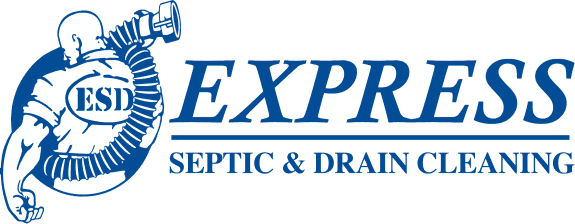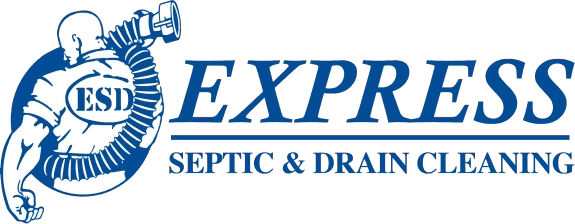Bacteria is the lifeblood of any septic system. Without healthy bacteria growing inside your septic tank, the solids would quickly accumulate and eventually lead to the tank overflowing. When this happens, it can allow solid waste to flow out into the leach field. This can result in ground contamination and also potentially ruin the leach field and force you to have it replaced. With this in mind, let’s look at the role that bacteria play in septic systems and how to ensure that the bacterium in your septic tank stays healthy.
How Does Bacteria Work in a Septic System?
As soon as a septic system is installed and starts being used, bacteria from human waste begin to colonize the septic tank. These bacteria feed on feces and any other carbon-based organic molecules like toilet paper and food particles. As the bacteria feed, all of the solids get broken down into a thick sludge that settles at the bottom of the septic tank. When new solids and wastewater enter the tank, the solids sink down and rest on the sludge. The wastewater floats on top and is expelled out into the leach field whenever more water enters.
When the solids are broken down, they take up far less room. This bacterial process thus ensures that there is plenty of room for additional solids since they are continually being broken down. There will always come a time when the volume of sludge rises too high, and the tank will need to be pumped. If the tank isn’t pumped occasionally, the sludge will eventually build up so much that the tank can overflow whenever additional solids and wastewater are added.
If the bacteria inside the tank are healthy, you really shouldn’t need to have your tank pumped more than once every three to five years. However, you can easily kill off most or all of the bacteria. When this happens, the solids won’t get broken down, and the tank will fill up far sooner. In this case, you could need to have the tank pumped every year or possibly even every few months. This is why it is essential that you take all of these steps to ensure that the bacteria remain healthy.
Avoid Bleach and Harsh Chemicals
The absolute worst thing you can do for your septic system is to pour large amounts of bleach or other harsh chemicals down the drain. If you do put lots of bleach or other chemicals into your septic system, you could also instantly kill the vast majority of the bacteria inside your tank. Even worse, those chemicals will remain inside the tank for a long time and prevent any new bacteria from growing.
Drain cleaner is one of the very worst things for septic systems. If you do find yourself dealing with a clogged drain, it is always best to attempt to clear it using a sink or toilet plunger. If this doesn’t work, seek the help of a professional plumbing or septic service to ensure that you don’t damage your septic system.
You should also avoid using any chemical cleaning agents like floor or toilet bowl cleaners as much as possible. The same is also true for using antibiotic soap since it will also harm the bacteria inside your septic tank. Instead of these, you should try to use natural or biodegradable cleaning products. Vinegar is a great option since it is both effective at cleaning and won’t harm the bacteria.
Use Septic-Safe Materials as Much as Possible
When shopping for cleaning products, toilet paper, laundry detergent, etc., you should always choose products that are labeled as septic safe. Anything labeled septic safe should be free of any bleach, dyes, fragrances or other chemicals that could harm the septic bacteria. These products are also specially formulated so that they will break down quickly and not interfere with the functioning of your septic system.
Septic-safe toilet paper is definitely a must. All septic-tank toilet papers are made in a way that allows them to disintegrate much more quickly and more thoroughly when exposed to water. This ensures that the paper takes up far less space inside the tank. If you use any other normal toilet paper, you will end up having to have your septic tank pumped much more often. Most septic-safe toilet papers are fully biodegradable and free of bleach and chemical fragrances.
Septic-safe laundry detergent is also important. Normal laundry detergent has a high level of surfactants. These wetting agents work by breaking up dirt and stains so that they can be dissolved in water. The only issue is that these surfactants can interfere with the normal functioning of your septic system as they collect and form a thick layer of scum near the surface.
This scum layer can trap solids and potentially allow them to flow out into the leach field. This is why most septic-safe laundry soaps are low in surfactants. The septic-safe detergents are biodegradable so that they break down instead of remaining inside the tank.
Most experts also recommend that you always use powdered laundry detergent in a septic system. The reason is that powdered detergent doesn’t foam nearly as much as liquid soap. If you do use liquid detergent, all of that foam can interfere with how your septic tank and leach field function.
Give the Bacteria a Boost With Septic Treatments
If you avoid putting harsh chemicals and too much solid waste into your septic system, the bacteria should always remain healthy, and the system should function properly. However, if you find yourself experiencing frequent septic issues or needing to have your tank pumped out, you may want to consider some type of septic treatment. These treatments are also recommended should you accidentally pour lots of bleach or other chemicals down the drain.
In addition, you should always add a septic treatment any time the septic system has gone unused for a few months or more. If the septic system doesn’t get used and no new waste is added, the bacteria will eventually begin to die off since they won’t have anything to feed on.
There are two main types of septic treatments. The first type contains a high concentration of natural microbes that can be used to replenish the bacteria in the system. If you use lots of bleach or other chemicals, this type of treatment can quickly restore the bacterial balance and ensure that the system works properly.
There are also septic enzyme treatments, which are biological additives that work to stimulate bacteria growth inside the tank. These enzymes work by changing the chemical structure of toilet paper and other organic waste products. This helps to begin breaking the solids down, which makes them easier for the bacteria to feed on.
Idaho’s Septic System Experts
If you need any type of septic services in the Boise, Nampa or Caldwell areas, you can count on the team of experts at Express Septic & Drain Cleaning. We specialize in a full range of septic services, including pumping, inspections, repairs, maintenance and installations. We also offer enzyme treatments to get your septic system up and running again. If your drain field isn’t working, we can provide drain field replacement. We also have an EarthBuster Deep Soil Decompactor that can eliminate drain issues caused by compacted soil. For septic systems that are clogged, we offer drain cleaning and hydro-jetting. To schedule any septic service, call Express Septic & Drain Cleaning today.


